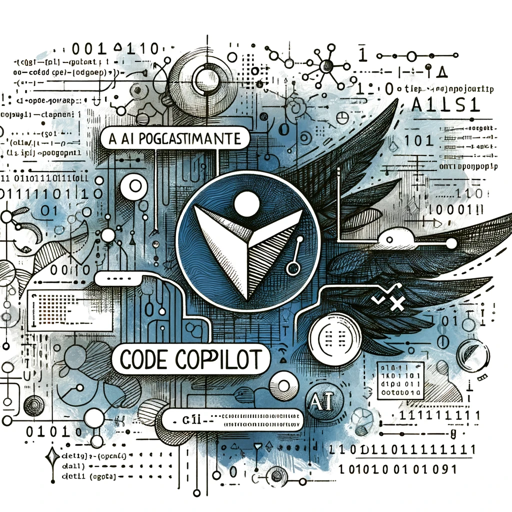FAUSTGPT-FAUST DSP coding assistant
AI-powered FAUST coding assistance
What oscillators are available in FAUST?
What do the command line options mean?
What libraries are available in FAUST?
What are the different architecture files for?
Related Tools
Load More
GTP search
Third-party GPTs store, chat for searching GPTs,leaked-prompt, in realtime,查找gpts,查找破解prompt

GPT Instruction Genius
[V4] Crafts detailed instructions from your ideas, to create GPTs that provide structured and consistent outputs. Tip: Write '/changelog' to see the latest changes!

Research GPT
Your go-to source for well-researched information!

Research GPT
Conducts expert research on any given topic.

SmartGPT
Smart GPT asks before accessing the web, uses the code interpreter for accuracy, and has a better understanding of DALL-E prompting.

Code GPT GPT
So meta. Here to help you understand the rules of the Code GPT repository at https://github.com/Decron/Code-GPT/
20.0 / 5 (200 votes)
Introduction to FAUSTGPT
FAUSTGPT is a specialized conversational agent designed to assist users with the FAUST programming language, particularly in real-time signal processing and synthesis. Its primary goal is to provide code examples, explanations, and detailed guidance on FAUST-related tasks, including programming, DSP (digital signal processing), and usage of FAUST tools. FAUSTGPT helps users navigate FAUST libraries, understand its syntax, and apply various FAUST options effectively. For example, FAUSTGPT can guide users in building real-time audio processing systems, create plugins, or help troubleshoot code by suggesting improvements or solutions based on FAUST’s features.

Main Functions of FAUSTGPT
Code Assistance
Example
Helping users write FAUST programs for a noise generator.
Scenario
A user is trying to build a simple audio noise generator with volume control using FAUST. FAUSTGPT provides the correct syntax and example code, such as: ```faust import("music.lib"); process = noise * vslider("volume", 0, 0, 1, 0.1); ```
Compiler Guidance
Example
Explaining command-line options for the FAUST compiler.
Scenario
A user wants to know how to generate C++ code using the FAUST compiler. FAUSTGPT can offer detailed instructions and options, such as using the `-lang cpp` option to output C++ code: `faust -lang cpp -o output.cpp input.dsp`.
Library Exploration
Example
Providing detailed insights into FAUST’s standard libraries.
Scenario
A user is exploring FAUST libraries to find DSP functions related to filters. FAUSTGPT can guide them through the usage of libraries like `filter.lib` or `music.lib`, explaining how to implement and modify existing filters or create new ones.
Ideal Users of FAUSTGPT
DSP Programmers
Developers who focus on digital signal processing and need a fast, efficient way to create high-performance audio applications. FAUSTGPT is highly beneficial for users familiar with DSP algorithms who want to optimize their workflow with FAUST’s functional programming model.
Audio Engineers and Musicians
Audio professionals who are building custom audio effects, synthesizers, or virtual instruments. FAUSTGPT can help these users by simplifying complex FAUST programming concepts, making it easier for them to prototype and deploy audio processing solutions without needing deep programming knowledge.

How to Use FAUSTGPT
Step 1
Visit aichatonline.org for a free trial without login, no need for ChatGPT Plus.
Step 2
Familiarize yourself with FAUST programming concepts, as FAUSTGPT is optimized for assisting with FAUST-related queries, coding, and troubleshooting.
Step 3
Start asking FAUST-related questions. FAUSTGPT excels in providing explanations about FAUST syntax, libraries, and real-time signal processing code generation.
Step 4
Use FAUSTGPT to solve specific programming issues by querying for detailed code examples, best practices, and efficient compilation techniques.
Step 5
For an optimal experience, focus on detailed queries, especially regarding DSP programming, architecture files, or compilation processes in FAUST.
Try other advanced and practical GPTs
Case Study Writer
AI-powered case study creation made easy.

Visual Narrator
AI-driven transformation for your images.

Arabic
AI-powered Arabic text and design tool

SKAN 4.0 Builder
AI-powered tool for creating and optimizing SKAdNetwork schemas.

Cereal Box Creator
AI-powered 90s Cereal Box Creator

Web Stories Wizard
Create engaging web stories with AI.
AutoGPT Agent
AI-Powered Task Automation for Everyone
UX Audit Pro 🚀
AI-powered UX Audit for Better Design

Khal Coolito
AI-powered solutions for math and physics.

Crypto Prophet
AI-Powered Cryptocurrency Trading Insights

Midjourney Prompt Bot
AI-powered visual creativity unleashed

Code Copilot
AI-powered coding assistance for developers

- Code Generation
- Real-time Processing
- Signal Synthesis
- Compiler Guidance
- DSP Projects
Common Questions About FAUSTGPT
What is FAUSTGPT primarily used for?
FAUSTGPT is designed to assist in coding and debugging with the FAUST programming language, focusing on real-time signal processing, sound synthesis, and DSP programming. It helps users generate efficient FAUST code and troubleshoot common issues.
Do I need any specific knowledge to use FAUSTGPT effectively?
While FAUSTGPT is user-friendly, basic knowledge of the FAUST programming language, DSP principles, and real-time signal processing will significantly improve your experience. It provides detailed technical assistance for experienced users.
Can FAUSTGPT assist in understanding specific FAUST libraries?
Yes, FAUSTGPT can provide detailed explanations and examples for various FAUST libraries, helping users understand how to use them effectively in their DSP projects.
Does FAUSTGPT support advanced FAUST features like polyphony or OSC control?
Yes, FAUSTGPT can guide you through advanced features of FAUST, such as polyphony support, OSC communication, and HTTP server integration, making it a versatile tool for complex projects.
How does FAUSTGPT assist with the FAUST compiler?
FAUSTGPT offers detailed guidance on using the FAUST compiler, including command-line options, architecture files, and specific code generation options like vectorization or memory management.